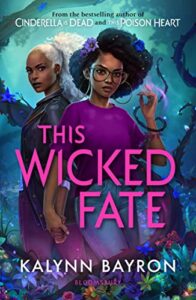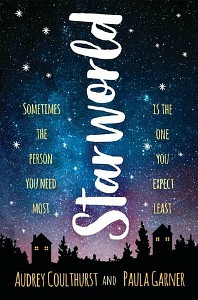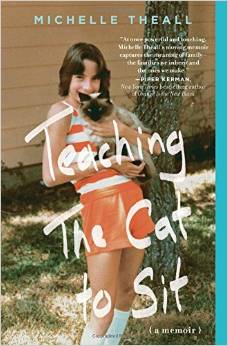Amazon Affiliate Link | Bookshop.org Affiliate Link
This Wicked Fate by Kalynn Bayron is the sequel to This Poison Heart, her gothic YA fantasy filled with Black girl magic, Greek mythology, and impressive action. This book picks up directly after This Poison Heart and deals with Briseis trying to grapple with the events and betrayals of the last book. Faced with an impossible task, she must embark with her newly-found birth family, her adoptive family, and her new friends on a heroic quest that would do a Greek legend proud. Bayron continues to pull in mythology and plant lore to give Briseis’s world a rich depth and backstory, but the presence of so many adults means that Briseis is less of a star and more caught in the whirlwind of plot.
In This Poison Heart, Briseis is the star as she tries to figure out her magic and her family history by herself. Her moms are aware of her magic, and they are the ones that move them into their newly-inherited house, but the connection to Greek history, the secret of the poison garden, and the source of Briseis’s power are all things that Briseis investigated on her own or with Marie and Karter. In true YA fashion, Briseis often decides that the adults in her life don’t need to know things, because she doesn’t want to worry them—a coming of age literary tradition. In This Wicked Fate, the presence of Circe and Persephone, and the sudden awareness of Moe of just what Briseis has been grappling with, means that Briseis is no longer in charge of the action. Quite reasonably for adults, Circe and Moe and Persephone are the ones making the plans for the Absyrtus Heart, leaving Briseis to insert herself in them and keep up with events as best she can. It’s a logical progression, but I found it less fun to read.
However, This Wicked Fate offers plenty of the amazing relationships that This Poison Heart boasted of. Briseis has a great relationship with her adoptive parents, and now she has to navigate what sort of relationship she wants with her biological family. Bayron handles the issue with depth and grace, leading Briseis and Circe to gradually get to know each other and figure themselves out while dealing with the horrible situation they’re in. Her relationship with Marie also blossoms, as Marie throws herself into their quest and being Briseis’s Muscle. It’s a very sweet relationship considering they met while they were in danger. Briseis even spends time grappling with her feelings about Karter because, even though he did betray her, he was her first friend in a new town, she valued the relationship, and she is starting to see how badly his family treats him. The themes of found family, generational trauma, and love and forgiveness run deep throughout the story and make this duology a worthwhile and entertaining read.
In conclusion, this is a solid ending to the duology started in This Poison Heart. If I found the first book more fun, I found that this book was full of deep meaningful relationships, character growth, queer love, and a satisfying ending. I would encourage any fan of YA fantasy to add it to their list today.



